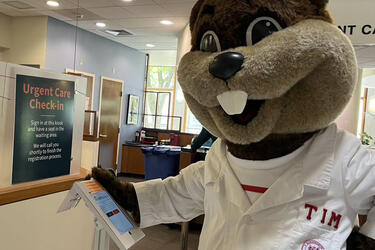
Group counseling
MIT Health’s Student Mental Health & Counseling Services offers a variety of support, discussion, and skill-based groups for MIT students.
Urgent Care
MIT Health’s Urgent Care Service is open M–F, 8 a.m. – 8 p.m. and weekends 10 a.m. – 4 p.m. Use Clockwise MD to reserve your place in line.
Ask Our Digital Navigator
Need to schedule an appointment? Have a question about our services? Our friendly Digital Navigator is here to help.
Your PCP
Choosing a primary care provider (PCP) is your first step toward getting the most out of MIT Health.



